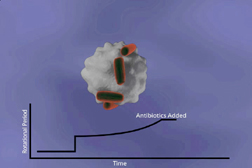Jan 25 2011
Researchers at the University of Michigan have recently found a means to measure the growth and vulnerability to drugs of a single bacterial cell without using a microscope.
The new biosensor will accelerate treatment of bacterial infections. This was reported by Raoul Kopelman, the Richard Smalley Distinguished University professor of chemistry, physics and applied physics and who also teaches biomedical engineering, biophysics and chemical biology. The sensor will help technicians find out within minutes the antibiotic that will treat the infection. This development and the sensor's use in screening prevailing and latest compounds for antibiotics will reduce the cost of medication and enhance patient care.
 Smalley
Smalley
The sensor will also track the response of single cancer cells, facilitating its future use in developing a cure for cancer. The research has been published in the 15 January issue of the Biosensors and Bioelectronics journal.
The sensor called AMBR deploys a spherical, magnetic bead that asynchronously rotates in a magnetic field. Using this particular theory, the team connected single, Escherichia coli bacteria shaped like rods to beads and then observed the result with the AMBR sensor.
They observed that when one bacterium got attached it changed the drag a great deal, thus slowing the speed of rotation by one-fourth. Any growth in the length of the bacterium will increase the drag, thus allowing the team to monitor the nano-growth by noting the changes in the rotation.
The process will be able to detect growth of even 80 nanometers, proving it to be more sensitive than a powerful microscope. The researchers also showed that the sensor can detect when the bacterium grows and when it stops growing, across its entire life span, making it possible to determine its reaction to antibacterial drug.
Source: http://www.unh.edu/